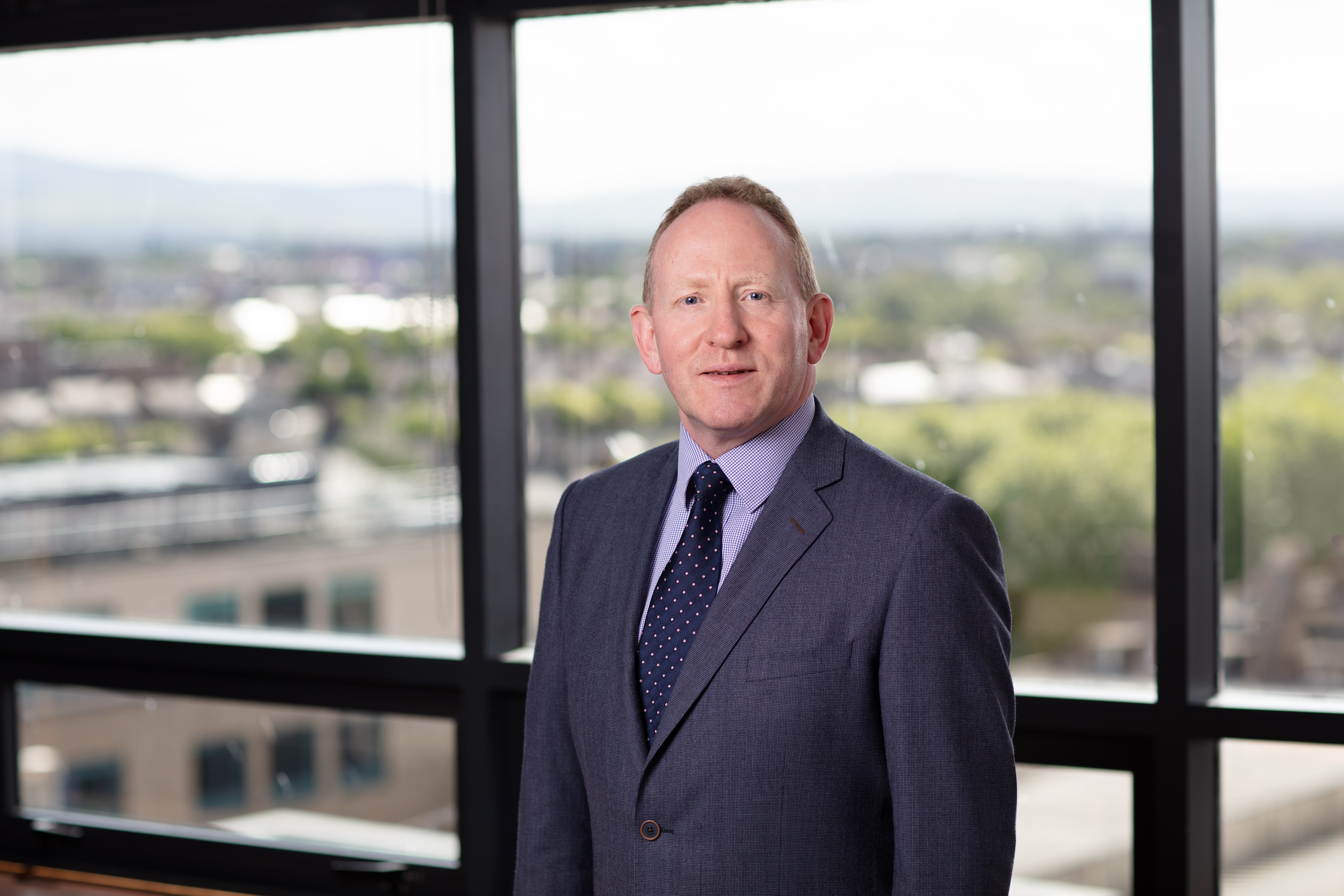EY refers to the global organization, and may refer to one or more, of the member firms of Ernst & Young Global Limited, each of which is a separate legal entity. Ernst & Young Global Limited, a UK company limited by guarantee, does not provide services to clients.

Enda Doyle, EY Ireland Consulting Partner, discusses the latest EY CEO Outlook Survey and why the TMT sector and CEOs are embracing AI and M&A activity for business growth.
In brief
- 61% of TMT CEOs see AI as a force for good which can drive business efficiency and create positive outcomes.
- The TMT sector is at the forefront of AI adoption which is heightening the perception of the risks associated.
- Despite some economic pressures, TMT companies remain focused on growth with 59% pursuing M&A transactions in the next 12 months.
CEOs in the global technology, media, and telecoms (TMT) sector are embracing AI as a force for good while remaining mindful of unknown, unintended consequences. They also believe more needs to be done to mitigate significant social, ethical and cyber risks.
The EY CEO Outlook Pulse examined attitudes to AI as well along with other risks and challenges facing the world’s leading TMT companies. Research for the report was carried out in June and July of 2023 with 190 TMT CEOs from Europe, Asia-Pacific, and the Americas participating.
The transformative potential of AI has captured the imagination of business leaders, investors and consumers over the past year with tens of billions of dollars being invested in generative AI applications, with drug development, software coding, and entertainment among the areas attracting most interest.
Overall, TMT CEOs have an optimistic view of AI with 61% agreeing that it is a force for good which can drive business efficiency and create positive outcomes for all, such as innovations in healthcare treatments.
They also reject the view that it will have a negative effect on jobs, with 71% agreeing that the impact of AI replacing humans in the workforce will be counter-balanced by the new roles and career opportunities that it creates.
These findings are broadly in line with the overall EY CEO Outlook Pulse survey of 1,200 CEOs across all sectors worldwide where 65% agreed that AI represents a force for good and 66% said its impact on existing jobs will be counterbalanced by the new opportunities it generates.
A keen awareness of the potential downsides of the technology was also in evidence. A large majority of TMT leaders (73%) believe the business community needs to focus much more on the ethical implications of AI and how its use could impact key areas of our lives, such as privacy. Furthermore, 72% of the TMT CEOs surveyed said more needs to be done to mitigate against AI 'bad actors' who could use the technology in harmful ways including the development of new forms of cyber-attacks, deep fakes, and disinformation.
There was also a strong belief that not enough is being done to manage the unintended consequences of AI, which could have significant implications for the business community and society, with 69% of TMT CEOs saying so.
Interestingly, the level of awareness among TMT CEOs was somewhat higher than for CEOs generally. This may be related to the fact that TMT is at the forefront of AI adoption resulting in a heightened perception of the risks associated with the technology.
In Ireland, the initial AI focus can be seen in areas of customer care, with some of the main Irish telecommunications companies deploying AI to drive a more efficient customer experience, while adapting more cost-effective processes through development and coding. However, like global TMT CEOs, there is cautiousness with the risks and a level of oversight is required.
Ireland headquarters a number of multinational technology companies and major data centres; therefore, the use of AI will have to be carefully thought out across the TMT space, most notable through robust regulatory measures, cyber security and GDPR and privacy considerations.
The generally positive view of AI is being backed by investment with 46% of TMT CEOs saying their organisations have already fully integrated AI-driven product/service changes into the capital allocation process and are actively investing in AI-driven innovation. The same number said they have not made significant capital investments to date but plan to do so in the next 12 months.
The same cannot be said for sustainability, however. While not ignored in capital allocation strategies, just 17% of TMT CEOs said sustainability initiatives are to the fore with substantial resources dedicated to supporting them. 24% said they prioritise sustainability initiatives and allocate a significant portion of capital towards them while 29% said they allocate capital to sustainability initiatives on the same level as other business priorities. 24% said they are not given significant weight when considering capital allocation.
These findings are in line with those of the global survey and suggest a shift in focus towards short-term financial performance on the part of hard pressed CEOs who are contending with today’s volatile geopolitical environment along with continued elevated inflation and interest rates.
Despite those pressures, TMT companies remain focused on growth with 59% of CEOs saying their organisations intend to pursue M&A transactions in the next 12 months while the same number intend to engage in joint ventures or strategic alliances with third parties.
Those intentions reflect a perceptible air of optimism among the majority of survey participants. 54% are moderately or significantly more optimistic about their organisation’s financial performance prospects over the next 12 months. Less than a third (31%) said they were less optimistic.
Finally, TMT CEOs are making use of AI as part of their approach to M&A transactions in areas such as target selection and due diligence. Over a quarter (26%) said they are making significant use of it today across the main elements of the transaction process while 50% said they are making initial use at present and are piloting potential solutions.
Summary
The picture that emerges is of a sector that remains focused on growth and technological innovation despite the economic and other challenges facing it. However, there will need to be an increased focus on sustainability to satisfy investor and regulatory requirements in the coming years.



